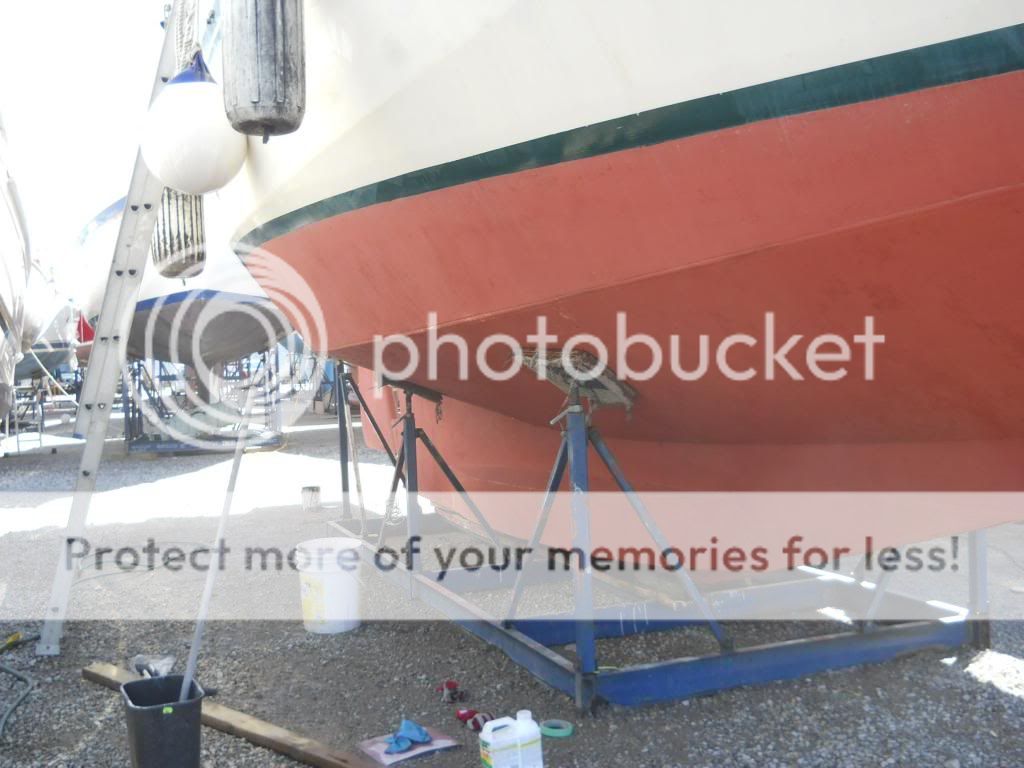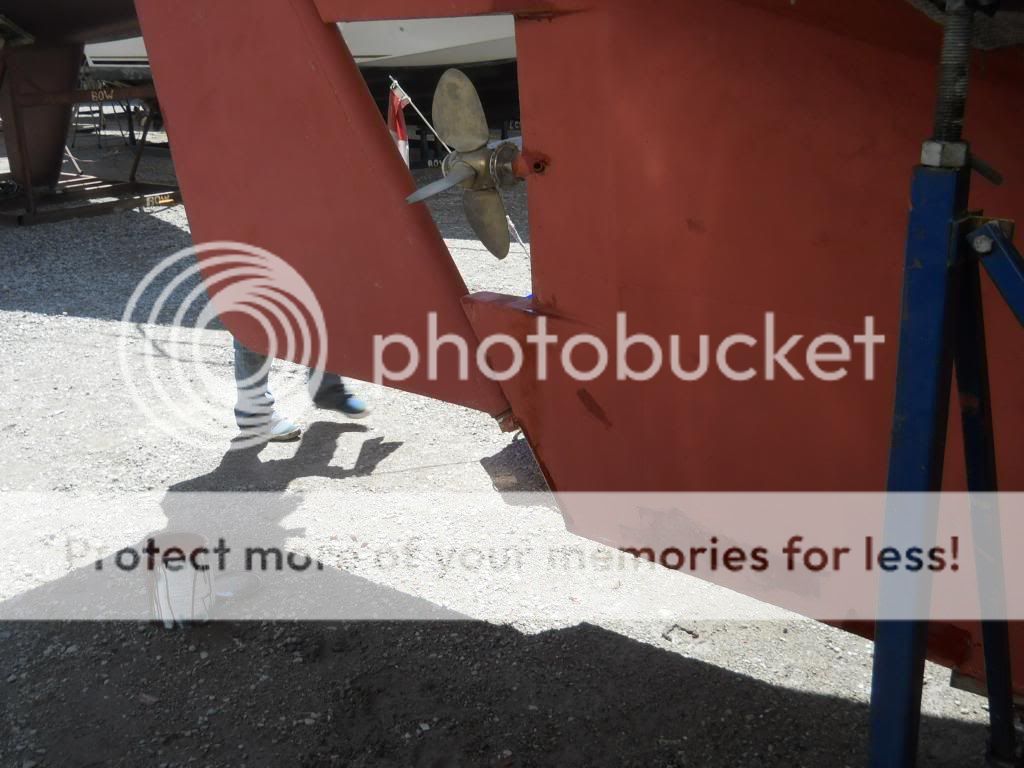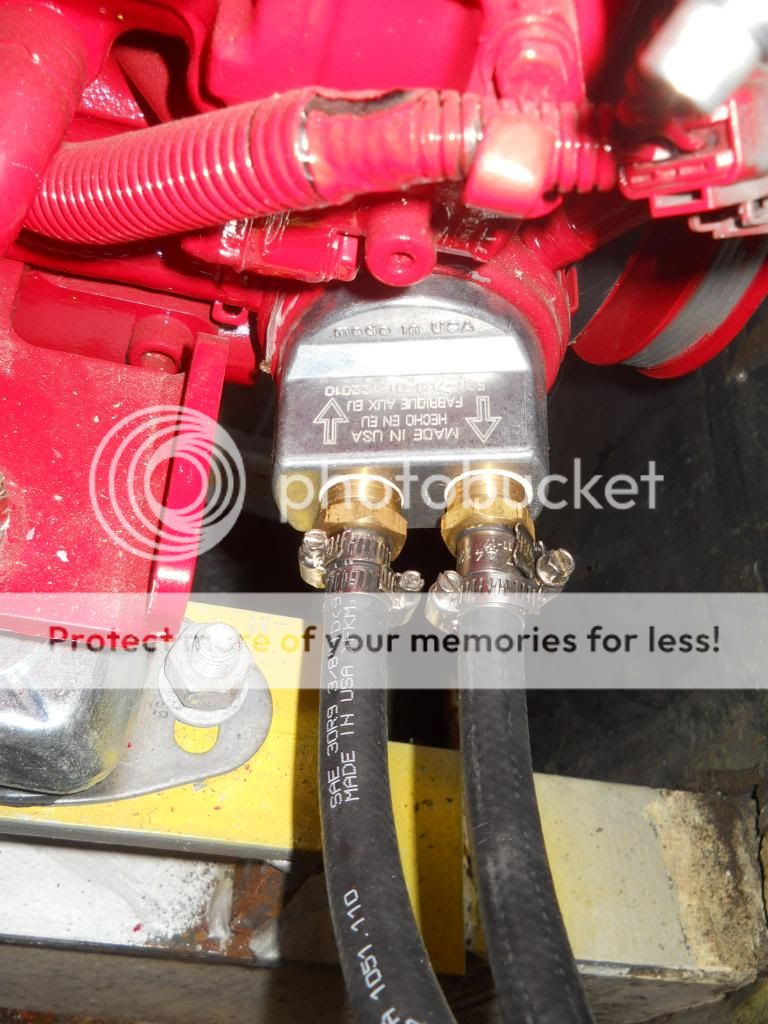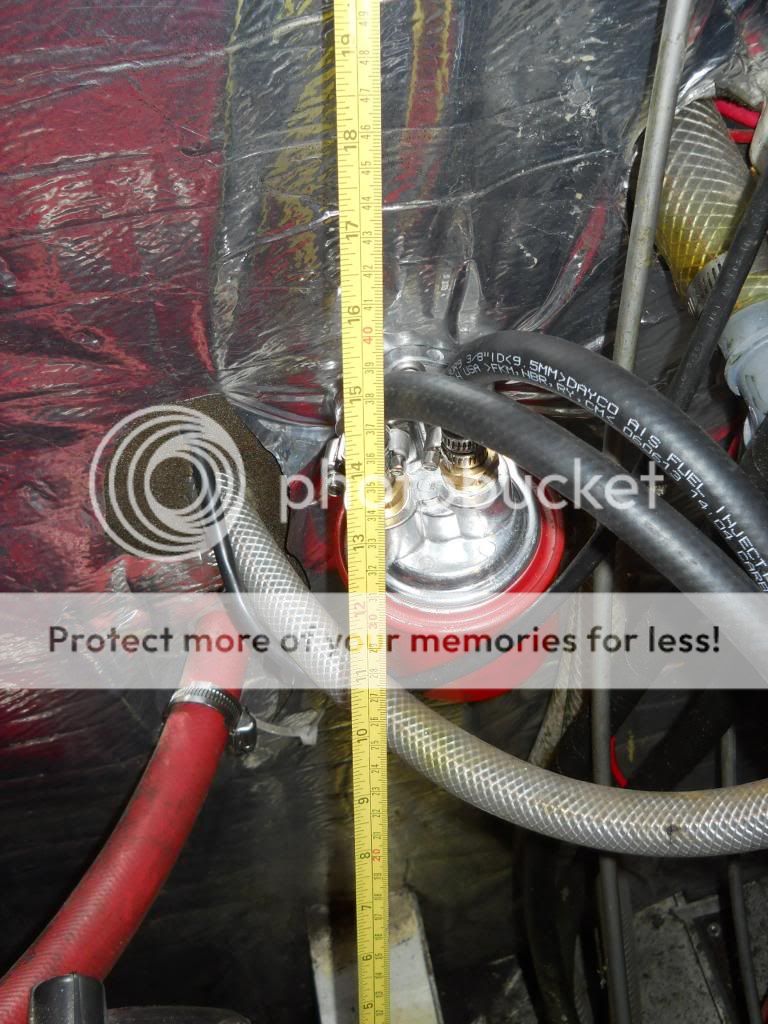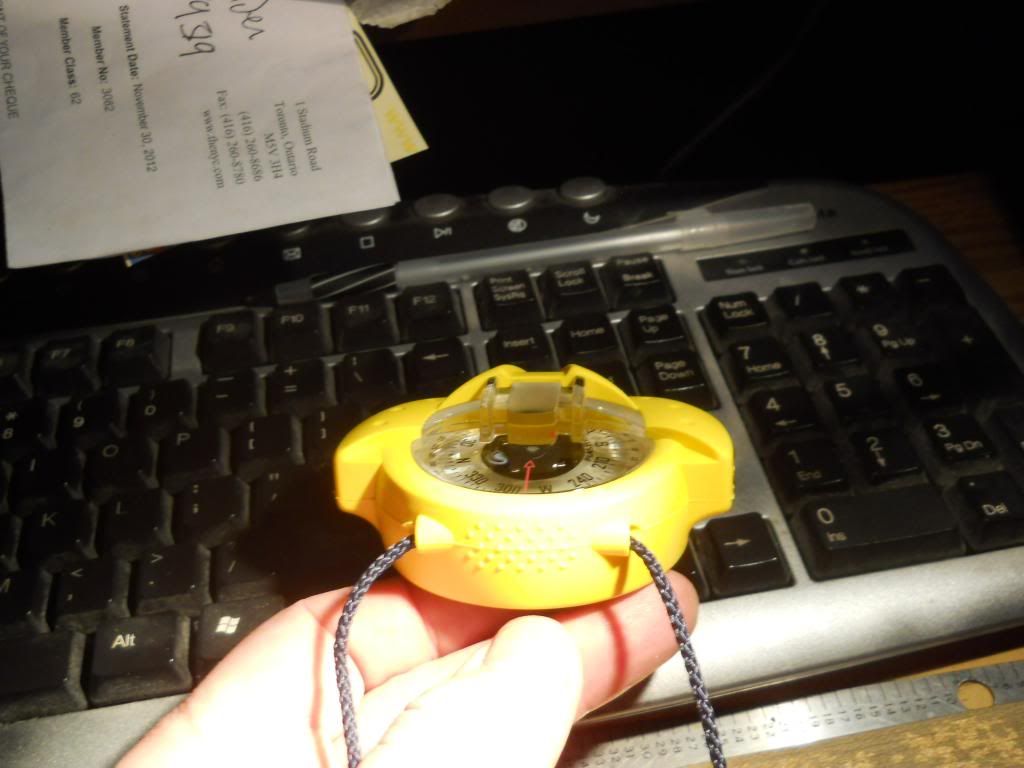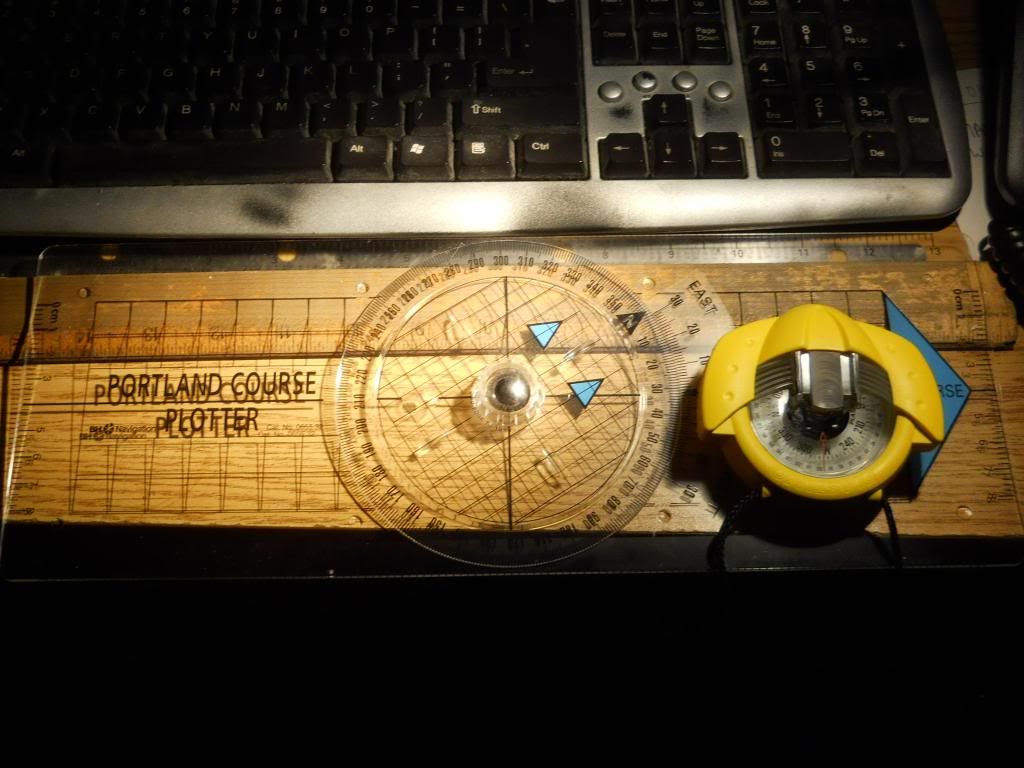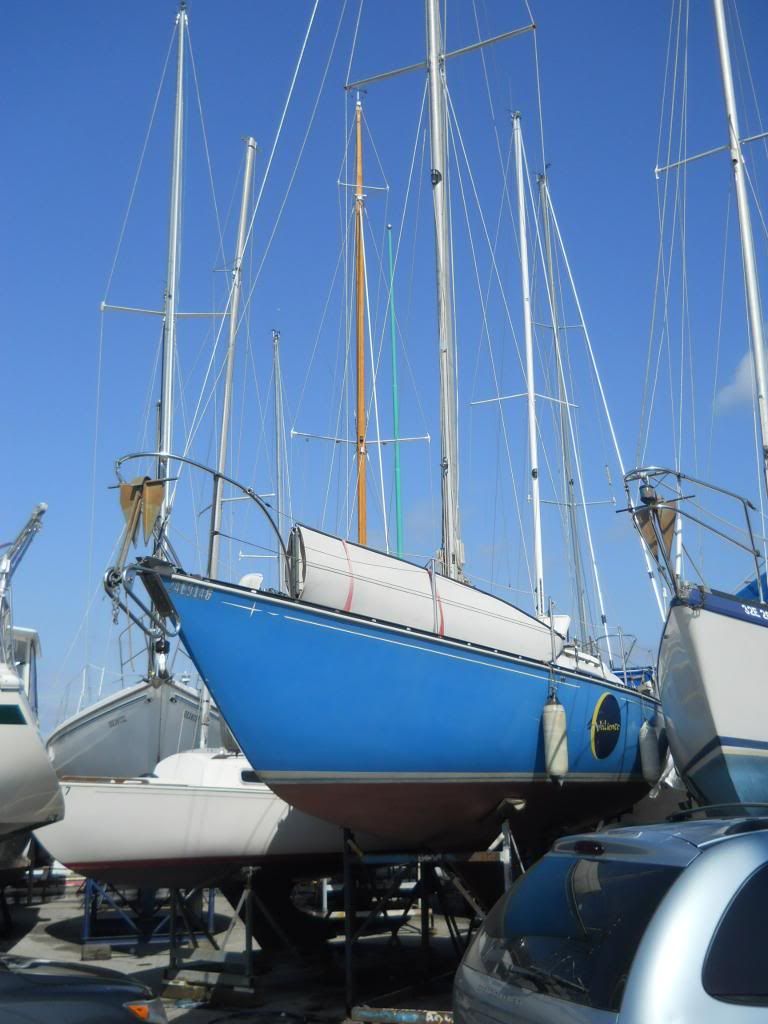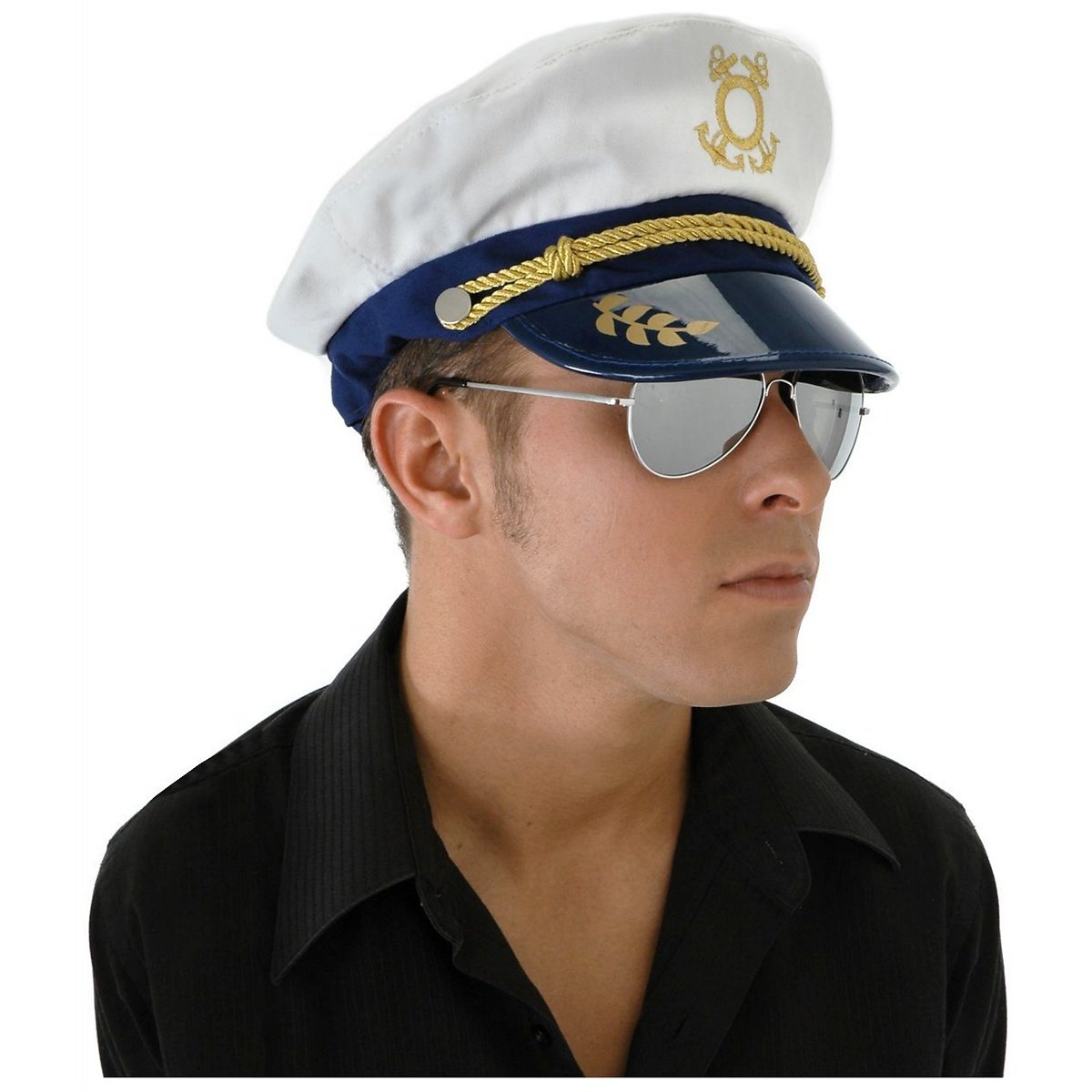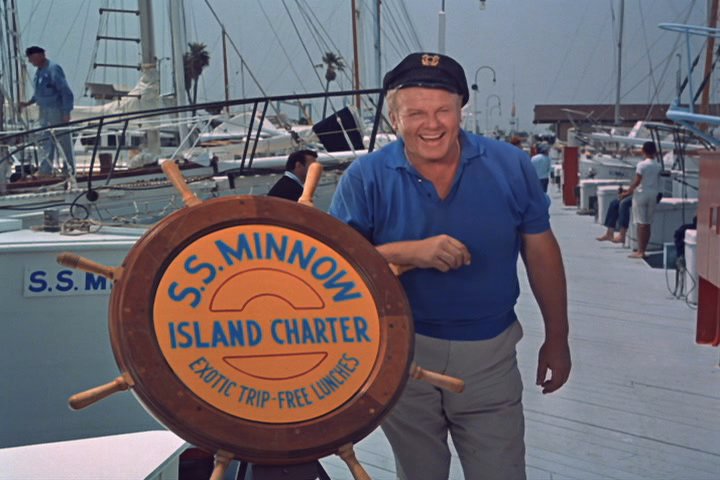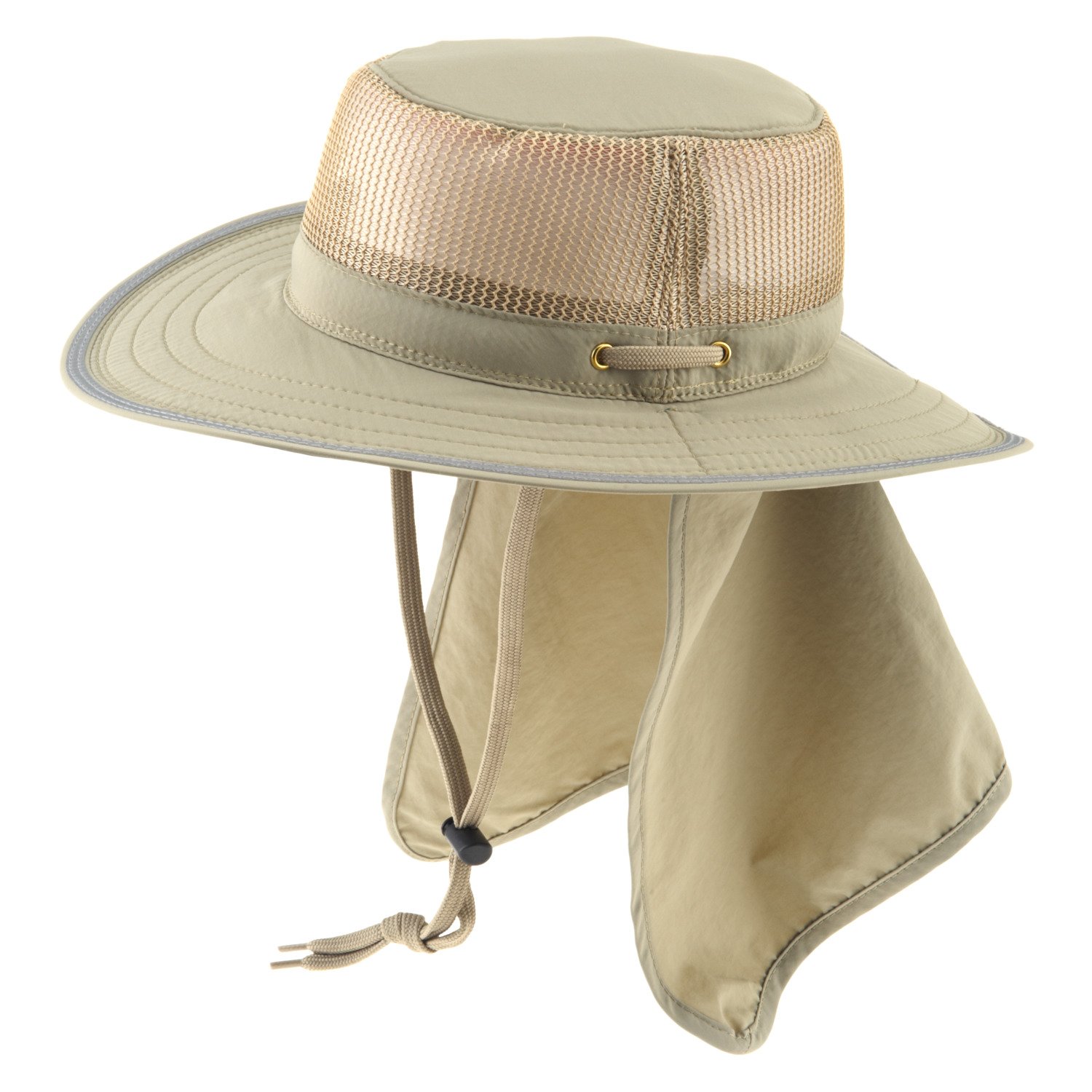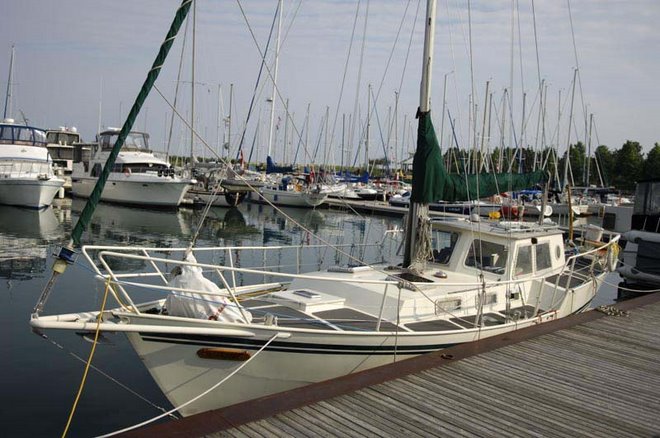 |
| The ship's wheel being handed over to rescuers prior to the scuttling of S/V Rebel Heart. One of the sadder photos at sea that I can recall. |
It's a funny feeling only possible in the last 20 years or so: the sense of vague familiarity that fleeting contact on the Internet renders possible between otherwise complete strangers. My first contact with
Eric and Charlotte Kaufman, the American owners of a
Hans Christian 36, was through, mainly, Eric's posts under the handle "
Rebel Heart" on the
Cruisers' Forum website.
 |
| S/V Rebel Heart as seen from a U.S. Navy helicoptern 900NM off Mexico |
It's led to much
debate and
soul searching, not only about the very few facts known about the rescue of the crew of S/V
Rebel Heart and her abandonment/scuttling, but about the nature of the armchair admirals and veteran sailors alike who have posted some
pretty hateful things (in the guise of constructive crticism, naturally) online, most of which are based in the implied idiocy of taking young children offshore. The sailing writer and delivery skipper Charlie Doane,
who himself was rescued from a busted catamaran in January,
thinks that children might buy sympathy, as he didn't get much himself.
Now, there are some who feel that calling for help is inviting regulation of the cruising lifestyle; sailors are supposed to be self-reliant and to only seek aid in the most dire of circumstances. And yes, it's easy enough to come up with episodes where squadrons of SAR resources have been dispatched for what many would derisively consider trivial reasons.
But we aren't all alike in our capacity for managing trouble aboard. Maybe we should be more so. I'm trying to gather experience and training to that end because of incidents I've heard of where accidents could have been avoided...or not required rescue...had the crew been a little less unknowing. Or more lucky, one can also conclude.
 |
| Reefed down to keep the motion kinder, I suspect. |
The reason the Kaufmans hit the big red button on the EPIRB is still not entirely clear to me, but a series of rough weather episodes, and a cascade of no-doubt-related equipment failures, was tipped over into the "rescue us" category by the youngest (one year old) Kaufman daughter exhibiting a persistent fever. Of course, being some 900 NM offshore, rescue was not instantaneous; my understanding is that it took three days before a ship with Zodiac-style tenders and the right sort of SAR personnel could arrive at
Rebel Heart's location to take the crew off, and to "cut the hoses" and deliberately sink the Kaufman's vessel as it was far too distant from shore to be reasonably salvageable, and because an uncrewed 36 foot yacht is a significant hazard to navigation. It's therefore customary, if abandoning ship, to sink it by cutting below WL hoses or opening seacocks or even punching a hole in the hull.
 |
| Rebel Heart was a Hans Christian 36. Also known as a "Union 36", you'd need a big chisel to punch a hole in this hull. It was made of fibreglass, but weighed only about three tons less than does Alchemy, a larger and steel boat. It was a reasonable, if not particularly swift, choice for conservative cruising. |
Rebel Heart's skipper Eric Kaufman has some sort of U.S. Coast Guard qualifications and is a former submariner; he would have known this. All else aside, the deliberate and necessary sinking of one's seaborne home is an occasion of deep sympathy for any sailor.
Probably because of the three-day window before a ship could reach them, and very probably because very young children, ages 1 and 3, were involved, this story "broke big" and became, briefly in the ever-advancing news cycle, big news. I first read about it on a comedic news aggregator website, and was shocked to realize "hey, I know
of these people". The news site's members, not in the main being sailors and taking their cue from the press,
were predictably scathing. Today's easily outraged online commenter does not hesitate to call for the authorities to remove children from their parents' custody, or to advocate "making them pay" for their own rescue.
 |
| The general public's feeling on learning that small children may, at times, cross oceans in Bob Perry-designed boats. |
Less obvious was the criticism found on various sailing forums,
particularly the one where Eric and occasionally Charlotte posted their plans for several years. Some of it, despite our own somewhat different circumstances, hit home with me. Eric and Charlotte,
whatever the quality of their seamanship and their choices, were quite typical of younger cruisers in their commitment to blogging and documenting their preparation and thoughts on cruising. They had so much to say, in fact, that they split their "boat blog" into two sections:
one for the dad and
one for the mum. Both are pretty good writers, but while Eric's blog is a fair bit like mine, Charlotte's is more wide-ranging and covers a lot of mothering issues and deals with her child-prep and children's clothing. There's even a link to her Etsy shop. There's even (as seems sadly inevitable in these cases) stories of "
I told you so" coming from "concerned family members". Hmm.
 |
| A sobering shot. |
While such "mommy" musings are clearly not unusual, they seem to have drifted into "oversharing" waters, raising the ire of many. Other sailors have been quick to dredge up Eric's criticism of the preparations or skill set (as he perceived them to be) of
other sailors who've required saving. What's clear (and not much is) from this online palaver is that things said online are
virtually forever, and that everyone, whether lubberly or skipperly, is a self-appointed critic of anyone else who dares to list their plans when it comes to getting the topsides wet. I have even read some
very cynical (and I usually consider myself to be more than typically cynical) theories concerns the near-complete silence of the Kaufmans since their safe rescue: that they are going to write a book and that they are soliciting donations.
Well, can you blame them if they kept silent? Why open oneself up to attacks like this?
 |
| Charming, as is the case with humanity at one remove. Image (c) therebelheart.com |
This couple are likely homeless, or perhaps couch-surfing for some time, and the home they've worked on for nearly a decade is at the bottom of the sea. They've also just survived a situation that might easily have killed their kid 20 years ago, before EPIRBs were generally in use on small sailboats. So given these things,
I would be surprised if they engaged their critics on any level beyond a dimissive expletive.
So, as I still don't feel I've heard Eric and Charlotte's analysis of "what
went wrong", I will withhold my opinions on their actions, not that they would really be helpful, except in a forensic sense that would perhaps serve our own endeavours. It's a truism of the shipboard life, however, that at sea, the skipper(s) make the call: they must have that autonomy and the preservation of the crew must take precedence. That's pretty well the end of it, for me. I wasn't aboard, and don't know the details, and further speculation must remain empty.
I am quite
interested, however, because we are planning much the same sort of trip,
but with some differences. The main ones for me are as follows (and are
to this point):
1) We have one son, currently 12 1/2, and the same size now as my wife.
He's been sailing since he was seven and is taking further advanced
courses this summer.
2) My wife and I have done two saltwater deliveries each (and separately) since 2007.
3) I've taken an RYA course and will take more. So will the missus.
4) We both know our pilotage, diesel repair, CN, and first aid and have taken courses (and fixed things while underway) to that end.
5) We've done most of our own refitting. That's why we haven't left yet!
Refitting/re-engining a mid-size offshore-capable boat is like
apprenticing in four or five different trades, or so it seems. Whatever else can be said for this, if something breaks, you will usually know what broke, where it is, where the spare is, or how to fashion a fix...if you installed it in the first place.
6) We've each experienced, on different boats, sustained gales of 40-50
knots and squalls past 65 knots. We know what that sounds like and how
to heave to, deploy drogues or reduce sail to kerchiefs. We know of the necessity of giving ourselves a rest and respite, something very young children are unlikely to grasp or endure.
7) This might be the most important part: We plan to leave Toronto for a summer's cruising in Nova Scotia, and then to haul out for winter in Halifax prior to a following spring Atlantic crossing of the British Isles.
Our "shakedown cruise" will therefore be in waters tidal, oceanic and yet domestic. The Gulf of St. Lawrence and the Atlantic in front of Nova Scotia
is the real deal, and yet is well-supplied if things break. And things always break. S/V Rebel Heart, by contrast, made their first offshore cruise one of the longest one can make: between Mexico and Polynesia.
I wonder, however, if my own blog posts and forum musings will come back to haunt us, should we experience difficulties, from the Hun-like hordes of those who, from the comfort of their keyboards, know better how to sail and "wouldn't have gotten into this mess".
Maybe we should cast off, and then "go dark". I know of a few cruisers who purposefully delay their posts for some weeks for reasons of security (why tell the world, which of course includes pirates and theives, where you are or where you anticipate going?). In light of recent events, I have a fresh appreciation for this tactic.
It's too close to spring launch for me to read
Rebel Heart's blogs or even do more than sample the largely useless speculative threads on various sailing forums, but I would suggest that our plans and preparations may
serve us better in the long run than did theirs, if only because ours are deliberately incremental, and because our son will be a near-adult and will be capable of being a real crew. Toddlers are, by contrast, incontinent cargo. I'm sure they have other charms, but even though we took our son sailing in a bundle and then a car seat from a very young age, we did not choose to go out of VHF range or in particularly tough conditions. Now we do: he's a good swimmer and lives in a PFD. I look forward to further progress.
 |
| The First Mate at five days of age, September, 2001. I cannot say that I haven't taken an infant sailing. |
I would still like to
hear the Kaufmans' side of their story if they choose to relate it.
One interesting response to the tidal wave of criticism (and I've
been there and done that) is accounts from "former boat kids" who relate the very positive effects of
growing up on a cruising boat. There have been balanced accounts
supportive of the Kaufmans from sailing parents who didn't come ashore after having children while cruising, and even nuanced pieces which acknowledge (or, at least, this was my takeaway) that
cruisers incur envy from those stuck on a treadmill, even if they would never choose the cruising lifestyle.
As a recently posted Practical Sailor article indicates, the reality is that it is a series of little things, such as health problems getting worse far from shore, that can end a voyage sooner than that big wave or that howling wind. Here's hoping that the Kaufmans don't give up their dream, and if their prep was sound, they can work on having better luck next time.
 |
| Alive, if boatless, the Kaufmans and their rescuers in California |
UPDATE: 2014.05.06: I found a post by someone named "Weavis" on the Cruisers' Forum website that is very apt and is applicable to all who venture an opinion on those who go down to the sea in ships, or Hans Christian 36s, for that matter:
Originally Posted by
weavis
As a young
physician in training, I was filled with a burning desire to change the
world. 5 years on, and having worked with wiser experienced men
and women, I came to understand a few immutable principles for living a
life. And as an older physician now, the principles hold good.
- Every single
person is entitled to respect. This means, as a friend, a parent, a
spouse and as a stranger. We have to respect every one enough to let
them live their own life. To make their own path, and to let them
succeed or fail on their own terms.
- We need to be in FULL possession of ALL the facts before we can assess ANY situation.
- When an event happens, and its not a good outcome, we need to ask ourself, "Is it my job to fix this?"
- We need to see what help, if any, can be
rendered in practical terms for people, if required to ensure they
have lots of space to recover and regroup and regain heath or
balance.
- We need to ask ourselves a number of
questions privately, "What can I learn from this episode if I am
faced with a similar situation?"
- "Would I have taken the route that was taken to arrive at the situation before me now?"
- Am I allowing personal, religious or
that inner set of rules (that we all have), or the outcome itself
to influence my analysis of the situation?
There appears to be a lot of rancour
regarding this situation. It would appear some C.F'ers have issue with
the personality of the man. Some have issue with decisions made
regarding his wife and children, and some have issues with post scenario handling of money.
Life law: We need to be in FULL possession of ALL the facts before we can assess ANY situation.
Even without all the facts, we are faced with the other life Principles to consider:
The journey is over, the vessel is no more, and life has forever changed for this family.
It is not our job to fix this.
Ours is to reflect on the situation and decide for ourselves
whether we would have, firstly undertaken the journey, and secondly,
what bits we would have done differently. We have the unique perspective
of being observers and learning without the pain of experiencing results of choices and circumstances.
Reality is that there is NOTHING we can do. President Kennedy was shot.
World wars happened, our parents died, the Titanic sank, and Rebel
Hearts journey concluded when it did in the manner it did as a
culmination of all things that led to it.
We cannot change a thing. It happened.
Eric cant change what happened, because he would if he could. And all the people irritated or morally outraged that he took his children
with him, cant change a thing. All the people aggravated at his
personality and attitude who feel a sense of karma in this, well thats
ok too, he that lives by the sword dies by the sword, but......... thats
a different issue to the CHOICE you would have made in preparing for
this trip, and that is all that matters.
We get one go at this life thing. Some of us approach it quietly and some announce it on the Radio.
We are owed nothing by Rebel Heart.
The C.F. community, comprises of all sorts of
people who write for a variety of reasons, and if they trumpet and blow,
and then the quiet descends, well that is all there is. We are not
Erics Mom or Pop or someone owed money,
we are just associates, we are not even real friends REGARDLESS of what
you think. He has other things to work out and needs to find the best
path to live with himself and continue this life.
There is also the 50-50-90 rule:
anytime you have a 50-50 chance of getting something right, there's a
90% probability you'll get it wrong. There is no starting over, you just
have to live with the mistakes you have made, and that what you consider mistakes are not what others might.
It would be nice if at some stage, the crew of
Rebel Heart tell their story. But you know what? It wont matter to some
people. There will be no change in their view or positional stance. It
will only inflame them more to convince the world that they are correct
in their assessment of everything that happened. And truth is, they
might have parts of it right, maybe all of it, and it doesn’t change a thing to what has happened. It can only change what we do in our lives.
Well said, sir.
